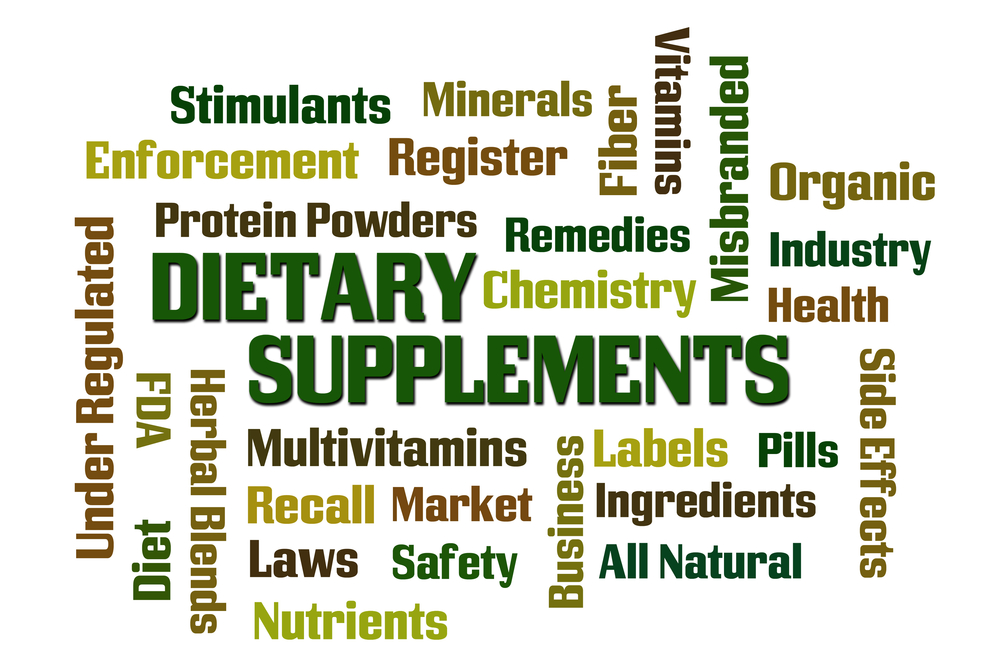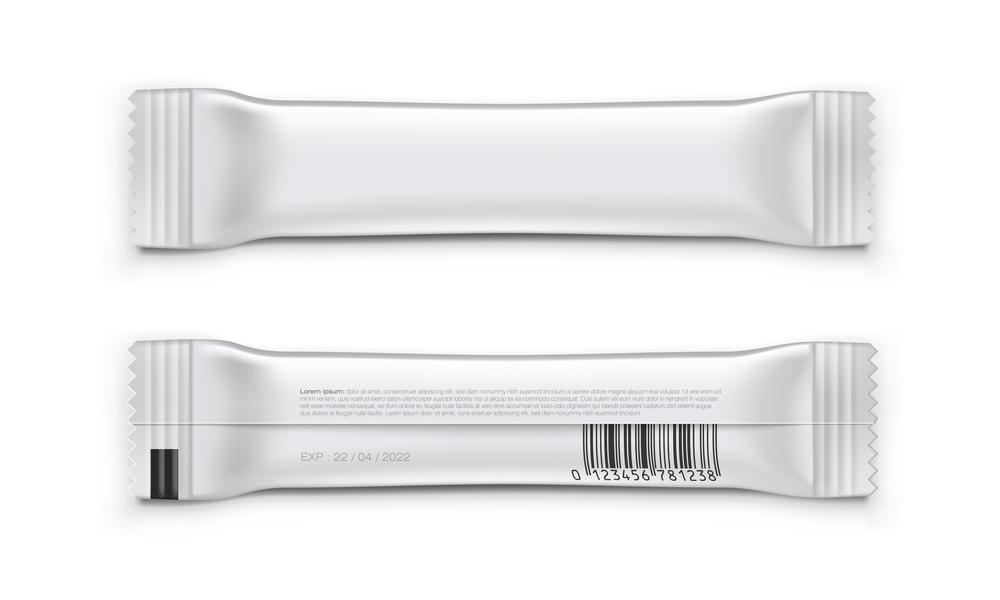
FDA Compliance for Your Dietary Supplements Store
Apr 5, 2021 5 minute read
The supplements industry is booming. In 2019, it was valued at $108 billion and is expected to reach over $185 billion by 2027. Selling dietary supplements is incredibly lucrative, if you can comply with the FTC and the FDA on regulations regarding not just sales but advertising as well.
Opening a dietary supplements store is much more complicated than simply obtaining a product (whether you create it, buy wholesale, or work directly with supplement manufacturers) and publishing it online. There are rigorous regulatory guidelines to follow and if you stray, then your store will likely be shut down.
Why Dietary Supplements Need FTC Approval
The Federal Trade Commission (FTC) monitors businesses for anti-competitive practices and deceptive marketing materials. Over the past 100 years the FTC has regulated trade, ensuring the global market maintains fairness and equal competition. Their influence started with the Federal Trade Commission Act of 1914 and has only grown more powerful since. They’re the reason why there are several vitamin and healthcare companies you can choose from, or even internet providers. Without the FTC, companies could easily monopolize any industry, which would be detrimental for consumer protection.
This is true for dietary supplements and weight loss nutraceuticals, too. It doesn’t exist only to ensure healthy competition, consumer protection from false advertising claims is equally important for the agency. If a dietary supplement claims to be a “cure” for something (e.g., arthritis, back pain), towards body enhancements (e.g., weight loss, muscle growth), or improvements in health (e.g., better sleep), it is subject to review. These claims need to have substantiation in the form of a clinical trial or real and verifiable testimonials from consumers.
Due to the nature of dietary supplements, the FTC and the Food and Drug Administration (FDA) jointly review products. This is because any supplement can be classified as a food or drug.
How the FDA Is Involved in Supplement Sales
As mentioned, any supplement that makes health claims, acts as a treatment, mitigates a problem, or prevents a disease will be reviewed by the FDA. These terms are all red flags for the administration and follows with the supplement in question being regulated as a drug.
When a product complies with FDA regulations, it can be understood as being tested and approved for sale. Without the FDA, anyone could create a product, claim incredible benefits for it, and sell it even if that product is incredibly dangerous to the consumer. The FDA prevents that from happening, looking at the consumer’s health as a top priority for perseveration. Product labeling, disclaimers and any advertising claims must be compliant with the regulatory requirements set forth by the FDA.
Complying with the FTC or FDA can be tricky, even if your product is perfectly safe for consumption. It’s worth noting that what tips the hat to draw the attention of these agencies mostly lies within a product’s advertising claims.
The FDA regulates supplement advertising in the form of promotional material at the time of sale, labeling, packaging, and inserts. The FTC regulates media ads in the form of television, internet, radio, and print.
The Don’ts of Dietary Supplement Advertising
Here’s a scenario: you have an incredible dietary supplement product offer and you’re extremely excited about bringing it market. You let all that excitement spill out into the product’s advertising because you’re a confident marketer. After publishing your ads, gaining traction and spending thousands, you get a notice from the FTC with enforcement actions unless you cease operations for further review into your advertising claims, clinical trials and dietary supplement labels.
What happened? It’s likely that, in your excitement, you created catchy ads that made health claims of which the FTC and the FDA feel lack reliable scientific evidence. The FDA take consumer protection very seriously with all ingestible products but particularly weight loss and dietary supplement products.
Don’t Say It’s a “Cure”
It’s as simple as that: don’t use the word “cure”. That word is a red flag; it will set off the alarms and release the FTC hounds on you. Making any type of disease claims within your marketing materials will result in warning letters or a complete cease and desist demand from the FDA.
Even if your product really does improve something like muscle pain or fatigue as evidenced by a clinical trial or reliable scientific evidence, it’s rarely an actual cure. There are no permanent results that last the consumer’s entire life if they stop taking the weight loss supplement. In that sense, the product is something that can help achieve a goal. Your product labeling should reflect a disclaimer with this information.
But it’s also important to note that results vary from person to person as your product formulation may affect one person’s wellness more than another’s. Some people see incredible results from weight loss products while others see no change. It’s better to have real testimonials and state that “results will vary” clearly in your advertising claims. Also, it’s important to advise consumers to consult their physician first to ensure any prescriptions drugs or medical devices they use would not interact with the dietary supplement. Those aren’t the sexiest things to market and you don’t have to plaster them on the front of the product label or packaging. You can certainly publish the positive testimonials, clinical trial findings and reliable scientific evidence about the dietary ingredients found in your weight loss supplement. These should be highlighted on your website while maintaining truth-in-advertising by giving consumers all the necessary disclaimers.
Don’t Make False or “False” Structure/Function Claims
Any product being sold shouldn’t make false product claims about its efficacy. This ties in with publishing disclaimers and varying results. You can be sure that the FTC will win any case related to false claims on a dietary supplement product. However, and depending on how false, that same product could go back to market if proper testing and substantiation follows the dispute. The primary responsibility of ensuring consumer protection is on the marketer of the weight loss product.
“False” claims are a different matter. Take the company Red Bull as an example. The slogan everyone knows, “Red Bull gives you wings”, led to a class action lawsuit which Red Bull lost. Now, we all know that the company isn’t claiming you will receive physical wings if you consume their energy drinks. But that hasn’t stopped someone from filing a lawsuit against them—and winning. This type of “false” claim still counts and will be regulated by the FTC on your dietary supplement, so be careful with your metaphors. The FTC and FDA look at the totality of your advertising claims and send warning letters if you’re not being reasonable. They may take further action and start a FTC case that can result in further legal action and fines for not following regulatory standards.
The Dos of Supplement Advertising
Now that you know what to avoid, you should also be aware of what you can actively do to keep your product in compliance with the FTC and remain in the market without worrying about compliance and regulatory issues.
Do Test Products
The FDA is inclined to classify your product as a drug if it claims to be beneficial to someone’s health. With any drug, testing and scientific support (that result with positive, reliable results) are necessary to receive FDA approval.
That testing should be done by a lab or entity that the FTC considers reputable and competent in the form of scientific analyses or clinical trials. This is particularly important for performance-related supplements. Proof of that performance increase should be submitted and published. Clinical trials and clinical studies can also help reinforce the validity of your health claims.
The FDA requires testing for supplements the same as those required for prescription drugs and medical devices. It may be a nuisance at times, but their approval and product labeling requirements do carry an important seal of approval for consumer safety and trust.
Do Disclose Information
It’s in FTC law that if a product’s imagery implies healthcare benefits, then the ad must disclose that the product has been tested (which it should be, and with reliable scientific evidence) and has proven health benefits. If the advertisement does not have this disclaimer, then it may be considered deceptive and you could be subject to enforcement action to ensure you comply with consumer protection protocols.
However, disclaimers do not prevent any advertisement from being deceptive. If you publish this type of imagery and the disclaimer without actual proof of testing, then the FTC can shut you down.
Do Meet DSHEA Requirements
Selling weight loss or diet pills (e.g., herbal supplements) falls under the Dietary Supplement Health and Education Act (DSHEA). Under this act, marketers must confirm two things: that the product was not assessed by the FDA; and that the product does not treat, cure, or prevent any disease. Your product label as well as your website should mention these disclaimers.
Weight loss claims that use more natural ingredients akin to home remedies are more likely to avoid FDA testing requirements, as long as the ingredients are clearly listed. Knowing how your product formulation is viewed by the FDA is key to avoiding costly fines.
The Compliance Workarounds You Should Know
We’re not saying you should trick the FTC or the FDA by any means, but there are a few workarounds the help alleviate some of the aforementioned rigidity and still maintain truth-in-advertising.
Some Scientific Support
The FDA and FTC want scientific support in the form of reputable analyses and clinical studies, but it doesn’t say exactly how much. It’s difficult to quantify any type of scientific support, but one strategy would be to have the product undergo one rigorous clinical trial from a well-known lab. That data could be enough to support product claims as long as it’s strong and displays reliable results if analyzed by the food and drug administration.
Action Is Only Taken If Products Are Proven to Be Unsafe
The FDA will only take action against your business if your dietary supplement undergoes testing that proves its inefficacy or harm. The FTC does not follow this, but if your advertising claims make any false or untested labeling claims, then they may send you a warning letter to begin with. Before making any claims, you need to ensure your product claims stand against a placebo pill. If there is no substantiated result between the placebo and your product, you may have a regulatory body after you.
Understand the DSHEA
Previously, we mentioned that the DSHEA does not force product testing if it’s a weight loss pill or diet-related supplement. However, the DSHEA also regulates other dietary supplements. It defines these as containing at least one: vitamin, mineral, herb/botanical, amino acid, or combination of those dietary ingredients. If your supplement falls under DSHEA regulation, then it is required to be classified as a food, not a drug, but the FDA. Therefore, it does not need to undergo any testing or approval requirements. Always make sure your supplement manufacturer can provide information about how your formulation may interact with heart disease patients who seem to be more vulnerable to certain ingredients pertaining to weight loss.
How the FTC Views Health Claims
The FTC handles health benefit claims with much scrutiny. Their full approach is available in the FTC act titled the Food Policy Statement (formally known as the Enforcement Policy Statement on Food Advertising).
Because the FTC is responsible for regulating food advertising, dietary supplements must follow the strict guidelines outlined. They’ve published an e-book titled Dietary Supplements: An Advertising Guide for Industry which can be easily found on the ftc.gov website. This book outlines in great detail with examples of how to properly advertise your supplements.
You can just as easily follow the guide written above with full clarity, but their book does provide further helpful insight. Remember, the primary responsibility and proof lies with the marketer of the dietary product. Keeping up-to-date with the FDA and FTC’s regulatory requirements is a must for every dietary supplement marketer.
If you work with affiliates, as the product owner, you are responsible for the totality of their claims. You need to verify that your affiliates are using marketing materials you approve and make product claims that are truthful. It is your primary responsibility to ensure your affiliates are complying with the FDA’s consumer protection laws. Marketers cannot hide or claim ignorance as the Washington, D.C lawmakers do not take well to finger pointing when consumer health and wellness is at stake. Take every step to avoid being the FDA’s next press release topic! Over-the-counter weight loss supplements also carry risks for consumers so do everything you can on a reasonable basis to be truthful.
DirectPayNet Provides Industry Compliance Features with Its Payment Gateway
Our payment gateway helps you maintain regulatory compliance with federal and state laws. The dietary supplement industry is heavily regulated. It’s also an industry that many payment processors consider high risk. Using a merchant account from DirectPayNet helps your store grow with compliance in tow.
Contact our customer support team to discuss FTC compliance further for your dietary supplement products and open a merchant account today.





4 thoughts on “FDA Compliance for Your Dietary Supplements Store”